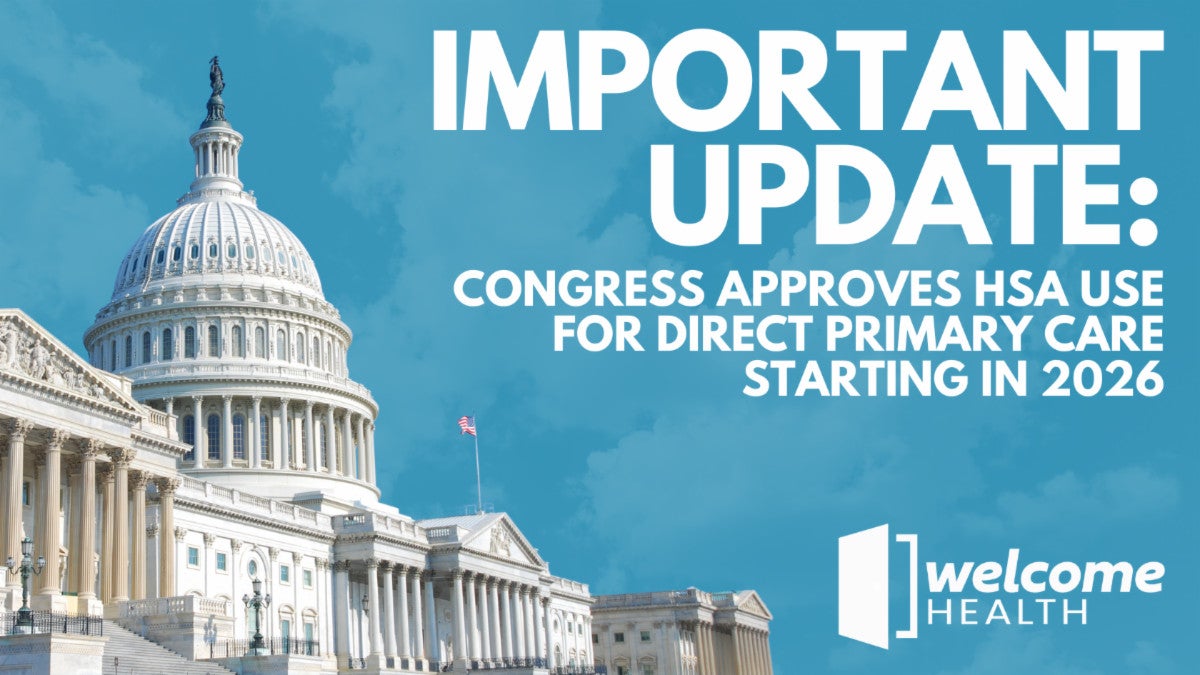Congress has passed H.R. 1, a major update that makes it easier than ever to access Direct Primary Care (DPC). Starting in January 2026, you’ll be able to use your Health Savings Account (HSA) to pay for a DPC membership—removing a long-standing barrier for individuals and businesses alike.
This change is a big win for patients who want more time, better communication, and consistent access to their doctor. It’s also a win for employers looking to improve workforce health and reduce long-term costs,” according to Welcome Health, a DPC provider in the CSRA.
Why This Change Matters
Until now, people with HSAs couldn’t legally use them to pay for DPC memberships. That meant many Americans had to choose between saving with an HSA or receiving more personalized primary care through the DPC model. This change finally fixes that problem.
With over 61 million Americans currently enrolled in HSA-eligible health plans, this shift opens the door to better care for a huge portion of the population. It also creates new options for employers looking to improve healthcare access and reduce costs.

What’s New: Key Benefits of the H.R. 1 Update
This legislation brings several important changes for individuals and businesses:
Use Your HSA for DPC
Starting January 2026, you can legally use your Health Savings Account to pay for a DPC agreement of $150/month or less. You won’t lose your HSA eligibility, and you won’t risk penalties from the IRS.
Employers Can Now Cover DPC
Employers may include DPC as part of their health benefits—even if they offer a High-Deductible Health Plan (HDHP). This gives employees more flexibility in choosing the right type of care.
DPC Costs Count Toward Your Deductible
Your monthly DPC payment can now be applied toward your HDHP deductible, helping reduce your out-of-pocket costs over time.
No Out-of-Pocket Costs for Primary Care
Employers are allowed to offer DPC with zero cost-sharing. That means no copays or surprise bills for everyday care.
More Employers Can Offer DPC
Thanks to advocacy from companies like Boeing, Amazon, and the Purchaser Business Group on Health (PBGH), DPC is now an option for businesses of all sizes. Your employer may now be able to include DPC in your benefits.
DPC Is Officially Not Insurance
Congress and the IRS have clarified that DPC is not health insurance. It’s a separate, advanced primary care model focused on better access and long-term patient-provider relationships.

What This Means for You
At Welcome Health, we’ve always believed that strong primary care should be accessible and affordable—without jumping through insurance hoops. This new law makes it possible for more people than ever.
We’re here to help you understand how DPC can work for your family or business.
Call us at (706) 504-9321 or email info@welcomehealth.net. Visit us in Augusta, Evans, or Waynesboro, GA.






